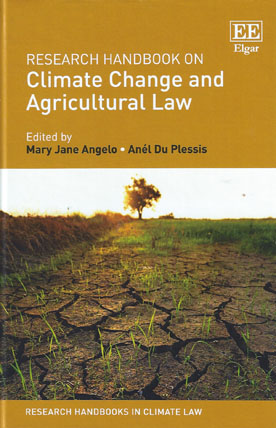
Bringing together scholars from across the globe, this timely book astutely untangles the climate-food web and critically explores the nexus between climate change, agriculture and law, upon which food security and climate resilient development depends.
Focusing through the lens of various domestic and international legal systems, this book addresses conceptual notions such as 'systems thinking' and climate change governance, as well as practical matters such as payments for ecosystem services and government subsidies for biofuels.
Concerning itself with the vulnerability and resilience of both people and agro-ecosystems, it shows how climate action can yield high returns for agriculture as the primary source of economic activity for poor populations. Far reaching, this book also explores under-researched areas, including the linkages between invasive species law, climate change and agricultural law and the underlying dynamics of agroecosystem vulnerability.
Assessing the strengths and weaknesses in existing agricultural laws and policies, it assesses new and innovative tools for addressing climate change mitigation and adaptation in the agricultural sector, before laying out a future research agenda.
Scholars in the fields of climate change law, land use and agricultural law will find this key publication essential reading, as will practitioners desiring a deeper understanding of the agriculture and climate change nexus.